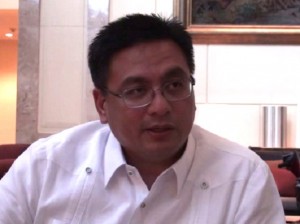Biazon scraps Customs task forces, special units
Customs Commissioner Ruffy Biazon on Wednesday ordered the abolition of task forces and other special units in the Bureau of Customs as part of a wide-ranging reform being implemented in the agency.
“This is part of our overall reform measures. This is a fresh approach. This will streamline offices or units within the bureau,” Biazon told reporters on the sidelines of the inauguration of the BOC’s media lounge.
The deactivation of the task forces would prevent “finger-pointing” among the BOC units and personnel, Biazon said.
“It’s also one way of zeroing in on responsibilities. When there are too many task forces, there is also a lot of finger-pointing when there is a problem in the system,” he explained.
“As we deactivate certain task forces, the responsibility in ensuring integrity in the whole process will now be on certain offices. They will have more responsibilities and there will be more expectations from them,” he added.
Article continues after this advertisementBiazon’s own Task Force React, a Customs unit in charge of valuation and examining importations, was the first one to be deactivated.
Article continues after this advertisementHe said a memorandum on the abolition of other task forces was in the process of being prepared.
“I began with my own task force React and we will be deactivating other task forces that have been set up by other offices,” he said.
Among those that will be abolished are task forces and special units not covered by a customs special order (CSO), which were created by Biazon’s predecessors.
“But if the task force is performing specific vital functions, they will not be deactivated,” Biazon said.
He said personnel from the abolished task forces may be assigned to the Complaints and Action Center that he is planning to put up.
“Some of those assigned at the task forces are doing concurrent functions, so they will just do their official function or return to their mother units,” he said.
Biazon, meanwhile, ordered the BOC Intelligence Group to come up with an “order of battle” that would identify individuals and corporations that are believed to be involved in smuggling activities.
“I asked them to prepare an order of battle, the ones which will be included in stepped-up operations by the BOC. This is sort of a list of people that we should be closely monitoring for possible violation of the customs law,” he said.
“There are two ways of catching [smugglers]. Either we catch them red-handed or watch them closely until we get enough evidence,” he said.
Biazon also instructed the Intelligence Group to crack down on smuggling with special emphasis on certain sensitive commodities like agricultural products, vehicles, alcohol and tobacco, and intellectual property rights violations.
